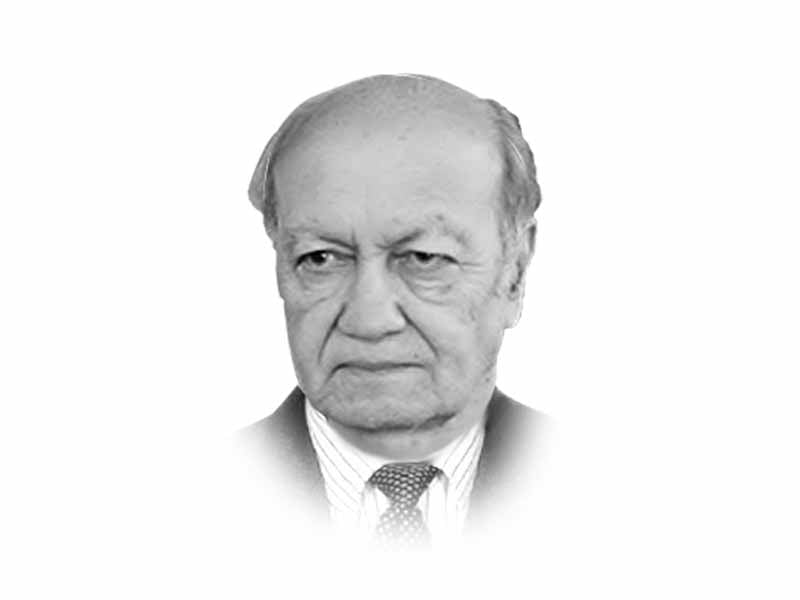
It would not be an exaggeration that there is hardly any serious introspection among the Muslims that their countries and Muslims as people are lagging in all essential fields that contribute toward national development. Most Muslim nations are heavily dependent economically either on the US, European Union, China or Russia. Even those that are economically affluent such as Saudi Arabia and the UAE are relying mostly on foreign firms and assistance to exploit their oil and mineral wealth. Nineteen of the African countries with Islam as the religion of the majority — Mauritania, Somalia, Algeria, Morocco, Tunisia, Sudan, Libya, Niger and Egypt — are seriously struggling with their economies that could collapse if foreign support were not forthcoming. The state of dependence of Pakistan needs no elaboration. For seventy-five years of our existence, we have not been able to develop a self-sustaining economy. Even now we are desperately seeking a few billion dollars of assistance from the IMF under strict conditionalities. This is despite our inherent strength of geography, talented people, professional military and nuclear power. Afghanistan is perhaps the worst case of perpetual economic dependence on foreign assistance.
As nothing comes free all these dependent Muslim countries must pursue policies that demand curbing their long-term economic and political ambitions. Moreover, the nature of foreign assistance is essentially keeping them afloat but not necessarily bailing them out from dependence in the foreseeable future.
Politically too they are decades behind the developed world or progressive countries. With one or two exceptions, none of the Muslim countries can claim to be democratic. Many are still kingdoms, and these too survive not as much from the support of their people as from foreign powers and by imposing strict political control or resorting to military rule. It’s a vicious bind that may not be easy to get rid of as it suits the rulers and their foreign patrons. Tunisia is one exception among the Middle Eastern countries because Tunisians managed to overthrow the monarchy. However, they are still struggling to establish a peaceful democratic order.
In terms of education especially in the field of science and technology, the contribution of Muslim countries is practically non-existent. This is one of the major reasons for their lagging behind. With the global economy being essentially knowledge-based this weakness needs to be addressed on a high priority. There is a school of thought that the rulers of Muslim countries deliberately deny their people education as it opens new opportunities and horizons for them and becomes difficult to manage their rising aspirations. A few years ago, the Saudi government in collaboration with top US and Western universities set up world-class colleges and universities. They hired professors of repute, but it failed to take off. In Pakistan, the education system from the primary to the university level is in a state of acute crisis with the government experimenting with the curriculum, which will most likely take it further down. The Prime Minister’s priority is to introduce his vision of Riyasat-i-Madina. What is missing is the efforts at reducing illiteracy as more than 30% of the population in Pakistan cannot read or write. This is a fundamental weakness with long-term consequences. Science and technology, subjects related to space, and new developments in IT that will keep the students updated and would enhance their knowledge and interests have been put on the back burner. Efforts are being made in Pakistan to bring changes in the type of religious education that is imparted at the schools and to reform the madrassas. Teaching at the madrassas has unfortunately promoted rote learning rather than a deeper understanding of religion and its great virtues.
Muslim countries due to outdated education systems are certainly lagging in areas that trigger innovation and development. Now their greatest challenge is how to relate to the fast-changing world. We need to remind ourselves that the Islamic world had a headstart in the Middle Ages and was advanced mathematically. Islamic scholars were known for being well-versed in astronomy and several branches of science. The decline started as their rulers strayed into incompetence and poor governance.
Some of the oil-rich Muslim countries with the help of foreign experts have managed to introduce the most advanced technologies and systems in running airports and railways, and creating an aura of modernity. However, they cannot keep pace with the new developments on their own and have to rely heavily on Western or Chinese assistance. True, this has injected new life into their economies and given a sense of pride and confidence, but its continuity would depend on the exploitation of their oil and gas revenues and development of the human resource. The oil sector exploitation has been possible from the know-how, machinery and equipment acquired from the West, Russian or Chinese sources, but that would require creating a strong educational network in the country if it is being sustained indigenously.
Pakistan has developed an elaborate infrastructure in the oil and gas sector with Western, Russian and Chinese assistance. Our engineers and experts in oil-related fields match the competence of foreign compatriots. We need to focus more on indigenous programmes and innovation and develop a long-term perspective and political consensus amongst major political parties. A similar approach of promoting indigenisation must be adopted in other fields — automobiles, electronics, avionics and communication hardware and software. Consistency in policies would be possible if major political parties are taken on board and has the support of state institutions and provinces. Technology-driven programmes can be better managed if there exists a critical mass of the educated population.
The world of today is highly complex and competitive. The independence of Muslim countries would essentially depend on the strength of their political and economic systems and governments that support a broad-based, scientific and technological education system and infrastructure.
Published in The Express Tribune, January 5th, 2022.
Like Opinion & Editorial on Facebook, follow @ETOpEd on Twitter to receive all updates on all our daily pieces.


1724238420-0/Untitled-design-(3)1724238420-0-165x106.webp)

1731678234-0/pete-(1)1731678234-0-165x106.webp)








COMMENTS (6)
Comments are moderated and generally will be posted if they are on-topic and not abusive.
For more information, please see our Comments FAQ